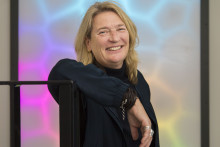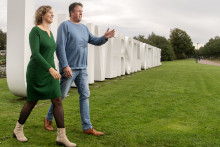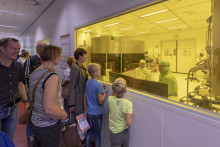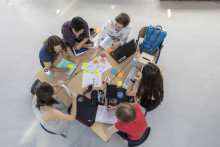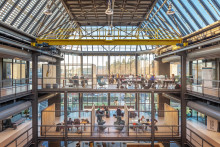As a people-first university, Wildevuur thinks there is no way around citizen science. ‘As a means, not a goal itself,’ she stresses. ‘We are already good at creating economic impact with our entrepreneurial and innovative character, and large numbers of spinoffs. But if you want to make societal impact, citizen science can play an important role. Starting this hub fits within the goals of Shaping and the current academic developments in the Netherlands, for instance towards more open science.’
Taking stock
One of the goals of the hub itself, is to bring together the skills and expertise of UT scientists in the field of citizen science. ‘We’re now starting to take stock of what we already have,’ says Wildevuur. ‘Some UT scientists already incorporate citizen science in their research approach very consciously, while others may be unaware that their research includes the underlying principles. Moreover, how citizen science is applied varies for different domains, for example the health domain differs from the field of biodiversity, in terms of topics and methodology. We want to make an inventory of the various research projects at UT, and which methods are appropriate. Fortunately, the ten principles by the European Citizen Science Association provide a good framework.’
No citizen science without citizens
Citizen science can’t exist without citizens, of course. ‘It’s also a form of empowerment,’ says Wildevuur. ‘This hub can play an important role in connecting the more traditionally top-down world of academia with the bottom-up challenges posed by society. Citizen science can play a role in working towards a more balanced relationship between scientists and citizens. But again, citizen science is not a goal by itself. In the end it comes down to conducting excellent research. This is another way to approach science.’
Citizen science conference
The opening of the citizen science hub is part of the conference ‘Let’s go together: shaping the future of Citizen Science’, which takes place on Friday 20th of November, digitally. Rector Thom Palstra will open the hub.
That’s one of the reasons the hub won’t be a physical space on campus, at least not for the time being. ‘We were considering it before, but we stepped away from that idea for the moment,’ says the DesignLab director. ‘Also because of corona, but we already learned that to connect with citizens we can use existing places were communities meet, such as football canteens or community centres.’
‘Spur on a movement’
Wildevuur hopes the UT-wide hub will develop ‘sustainably’. ‘The hub will build upon knowledge that is already generated, such as in the regional project Topfit/CitizenLab. In February 2021, we will start a big European project ‘INCENTIVE’, with hubs being built in four different countries. Our UT-hub helps to spur on a movement, by providing a good infrastructure based on knowledge, and connecting with people.’


